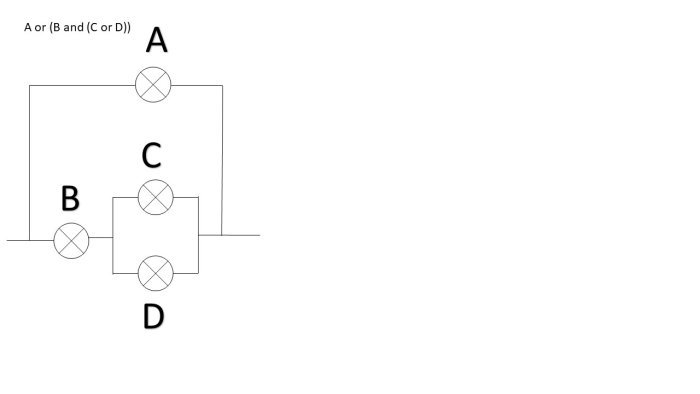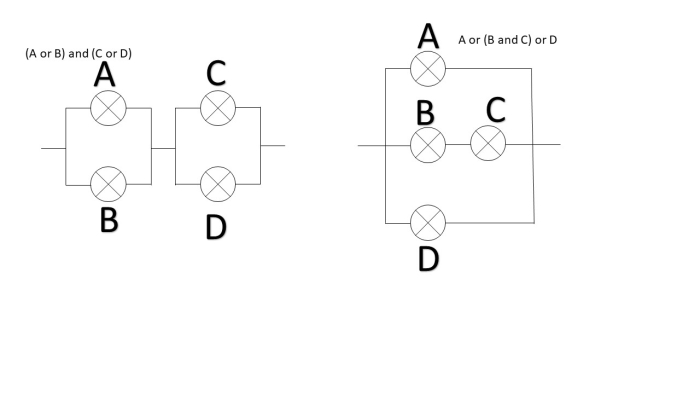It bothers me when people are imprecise with their writing. Consider the use of the conjunctions OR and AND. You will see sentences of the form: A or B and C or D. Without parentheses this is ambiguous. Let’s examine the various possible interpretations.
Let the circle with a cross represent a logic bit that can be true or false. I like to think of it as a normally-open contact, as in a motor control logic. The lines are a flow path. Think of them like a wire in a circuit. Reading from left to right.
We also need to consider how adjectives modify (nouns or verbs) that are conjoined. Using a negation, such as not or don’t, makes it even worse.
The NOT distributes into parentheses thusly:
not (A and B )= not A or not B
not (A or B )= not A and not B
For example, “I don’t like warm soda or milk.” Does “warm” distribute to milk, or just soda? Let us assume that it does distribute to “milk.” Therefore, the example sentence would be:
don’t like warm (soda or milk) = don’t like (warm soda or warm milk) = don’t (like warm soda or like warm milk) = don’t like warm soda and don’t like warm milk
But what about this: “Hunters wear orange vests and boots.” Orange is not intended to distribute to “boots.”
I suggest we insert more parentheses into our writing.
Edited by Brony Number 42
-
 1
1






13 Comments
Recommended Comments
Create an account or sign in to comment
You need to be a member in order to leave a comment
Create an account
Sign up for a new account in our community. It's easy!
Join the herd!Sign in
Already have an account? Sign in here.
Sign In Now